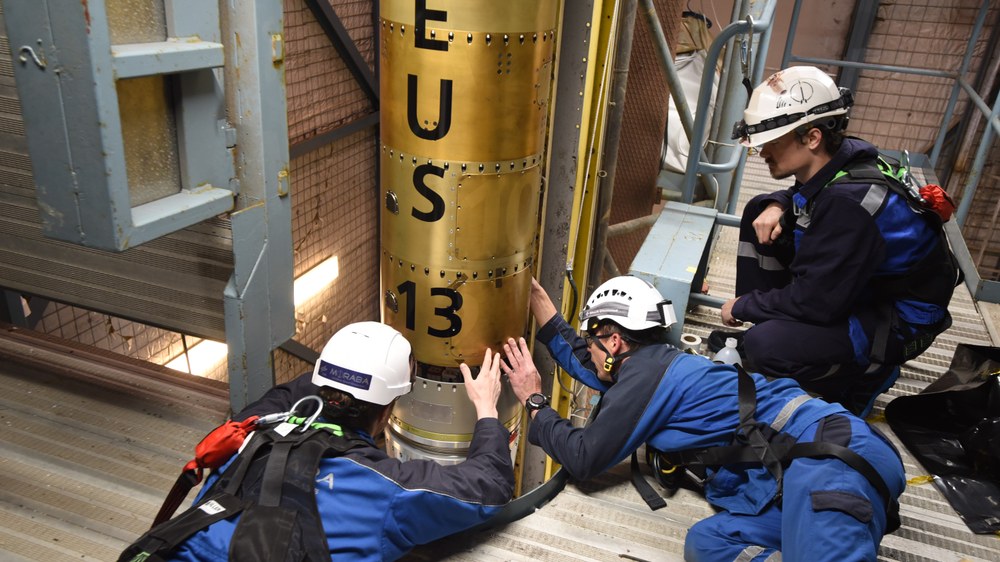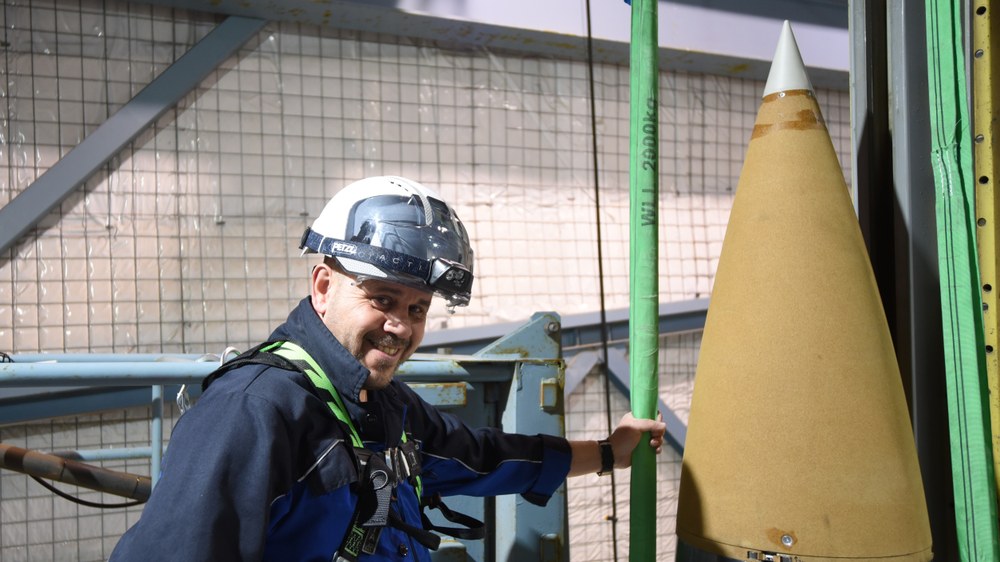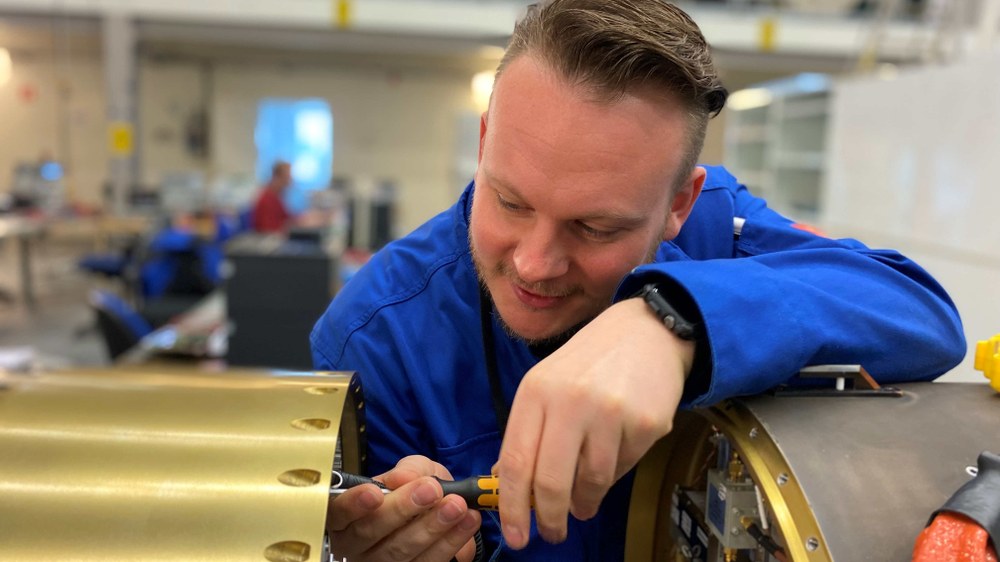The rocket launchers – DLR’s Mobile Rocket Base MORABA

They are designers, rocket technicians, computer scientists, flight planners, retrieval experts, communications specialists, craftspeople and logisticians – and what they do is pure rocket science. The team at DLR’s Mobile Rocket Base (Mobile Raketenbasis; MORABA) are facilitators. Their role is to make it possible to conduct research experiments under microgravity conditions on board sounding rockets and return them to Earth. They provide ideal research conditions that are tailored to the scientific requirements of each user and which can be carried out regularly enough to conduct repeat experiments that lead to robust scientific results. But this work requires a very specific kind of person; the MORABA team lives and works at international launch sites for several weeks a year. They must work with propellants and pyrotechnics while keeping a cool head during tense countdowns and enabling research to be carried out in a safe and precise many. This requires a strong set of nerves. Below, we will introduce a number of selected personnel representing the 60-strong team.
The team is like a second family

Jürgen Knof maintains lists of which launch campaigns he has worked on and when and where he has travelled. He recorded his 365th day spent working at the Esrange Space Center in Sweden during the Mapheus 13 campaign. That means, across the 12 years he has worked at DLR’s MORABA, he has spent a total of one year at the launch site, located approximately 50 kilometres from Sweden’s northernmost town, Kiruna, deep within the Arctic Circle. In summer, the site receives 24 hours of daylight, while in winter, it experiences total darkness and freezing temperatures. Then, of course, there are the visits to other launch sites such as Andøya in Norway, where MORABA also launches rockets. Several times a year, Jürgen Knof spends two or three weeks on campaign for DLR. “My family stays at home, which is not always easy,” he says. However, the colleagues at MORABA have become a second family to him. “We have a special bond.” Sharing work and leisure time for weeks at a time requires the team to get along, allow others space and work together in a way that maintains a pleasant atmosphere.
“I need to work with my hands”
The path that brought the mechanic to MORABA was not straightforward, but nevertheless ultimately led to the right job. Jürgen Knof spent 20 years working as a carpenter before having to retrain for health reasons. His friends knew of MORABA, and after learning about their work, the carpenter decided to train as a technical product designer. The five-month internship he completed at DLR for this purpose was the decisive factor behind him joining the rocket launcher team to work on the rocket’s recovery system. “I can’t just sit at a computer. I have to be able to work with my hands as well.” When he sees a rocket take off for its flight into microgravity, Knof knows: “There is that part in there that I developed and built.”
From planning to implementation

Andreas Kimpe and Sebastian Weiß value a different aspect of their work at MORABA. The two work in DLR’s telemetry station, which is responsible for sending and receiving data during the mission. “Actually, the station is also my baby,” says Kimpe, who designed, planned and implemented the mobile station. Kimpe’s his first contact with DLR was his training as a communications electronics technician. After later studying electrical engineering, he returned to DLR to work at MORABA. His first visit to the Esrange Space Center in Sweden came just five days into the new role. His colleague Sebastian Weiß first came into contact with MORABA during his studies. He took part in the student project Rexus – a programme run by the German Space Agency at DLR that enables students to conduct their own experiments in microgravity. The experiments are planned by the students and launched by MORABA. Sebastian Weiß carried out work for his master’s thesis at DLR before being subsequently recruited to work at MORABA.
The engineers both describe the same advantage of working for MORABA: “You can develop yourself further, have fun and come into contact a wide range of activities within your field.” They have also experienced the same disadvantage – the postponement of a launch campaign can cause headaches when it comes to planning events in one’s private life. Balancing the scheduling of launch campaigns and family celebrations at home is a challenge that unites the whole MORABA team.
All-rounder instead of an one-track specialist

Jochen Barf has aspired to enable cutting-edge research since his studies. However, he initially considered a role in building satellites that researchers would use to carry out their experiments. “Now, it is rockets instead of satellites,” he says. His participation in one of the Rexus missions in 2014 contributed to this change of heart. Today, nine years later, he is the Campaign Manager for the Mapheus 13 sounding rocket. He is responsible for preparing the mission, planning test procedures and for the launch. He also collects the requirements that researchers have for their experiments and ensures that all the important information flows into the mission planning and that all the teams can work together on site. On launch day, he is responsible for managing the operational activities related to the payload during the countdown. “We have professionals from so many disciplines working together and sharing information – you can’t do it at all without excellent teamwork,” he says. “Our goal is to have a successful launch and flight, and everyone works towards that with a great deal of commitment.” Barf particularly enjoys exchanging with other experts: “In my role, you don't become a technical specialist, but you are always learning something new from many different disciplines.” When he is not planning and directing campaigns, the computer scientist takes care of the software for the systems on board the rocket and on the ground.
Despite the number of successful launches carried out by MORABA: “I don’t feel good five minutes before the launch,” says Jürgen Knof. During his very first campaign 12 years ago, he experienced the rocket crashing back to Earth instead of returning gently on a parachute. “That was really very grim.” But from every mistake comes knowledge with which you can continuously improve and apply to the following missions. After all, in the world of rocket launchers, no research flight is ever routine.
Tags:
